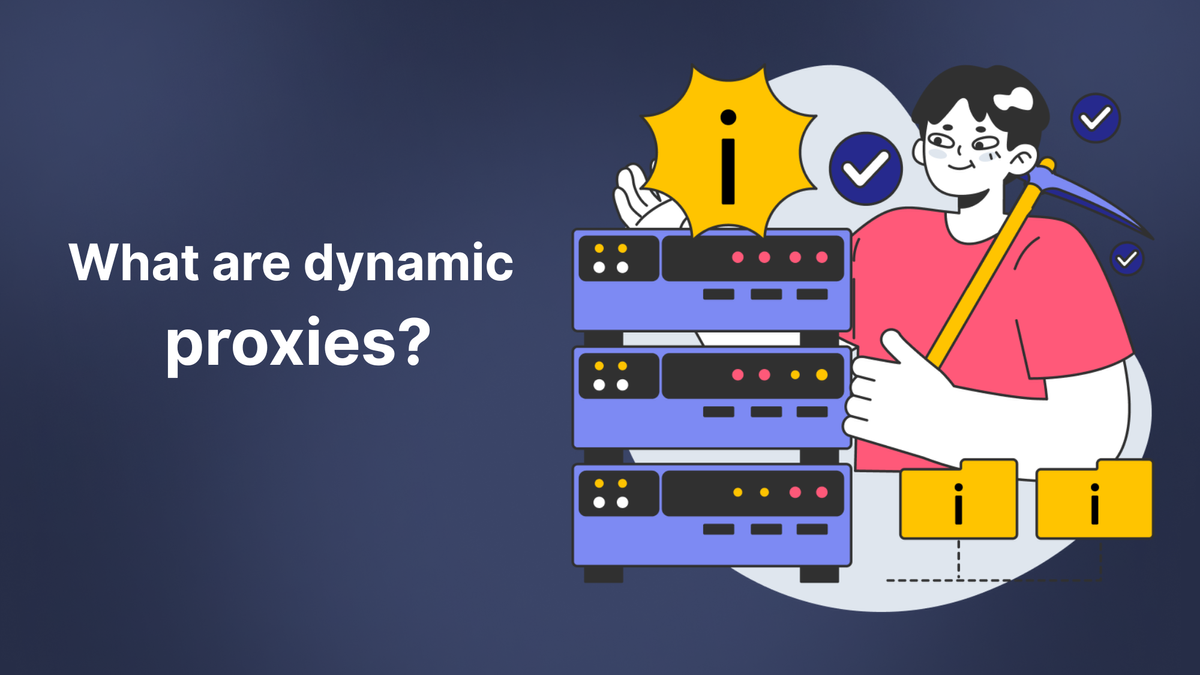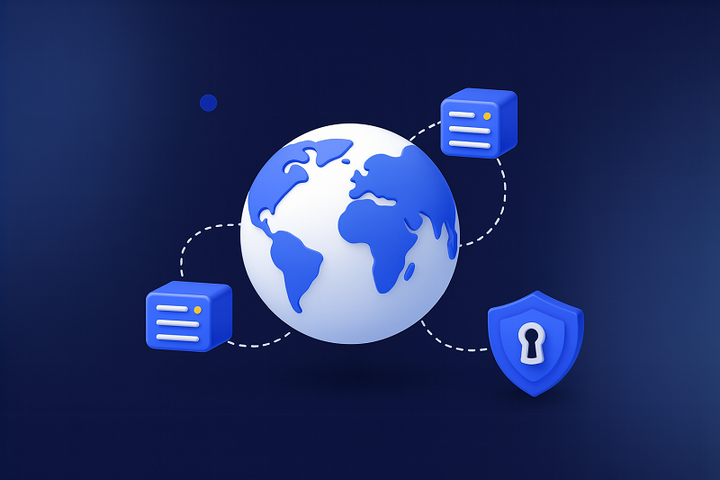What makes dynamic IP proxies interesting?
For users of anti-detect browsers, understanding how proxy servers can help with professional tasks and earning money is essential. Working without a proxy while using an anti-detect browser is a common mistake that can lead to account blocks. Always use proxy servers to hide your real IP address.

For users of anti-detect browsers, understanding how proxy servers can help with professional tasks and earning money is essential. Working without a proxy while using an anti-detect browser is a common mistake that can lead to account blocks. Always use proxy servers to hide your real IP address. The anti-detect browser doesn’t do this automatically. You can buy proxies directly in the WADE X browser.

One of the most useful types of proxies for anti-detect browser users is dynamic proxies. These proxies automatically change IP addresses, making your online activity harder to track. Many users ask: How do dynamic proxies work? What are their advantages over static proxies? How do you choose the right type for your needs? In this article, we will explore dynamic proxies, their benefits and drawbacks, and how to use them effectively in anti-detect browsers.
What Are Dynamic Proxies?
Dynamic proxies are proxy servers that automatically change IP addresses with each request or based on a set algorithm. This means that every time you use an anti-detect browser with a dynamic proxy, your IP can change, making it difficult for others to track your actions.
Advantages of Dynamic Proxies
Dynamic proxies offer several key benefits:
- High Anonymity: Changing IP addresses often makes it harder to track your activities, which is crucial for tasks like data scraping.
- Access to Many IP Addresses: Dynamic proxies give you access to a large pool of IPs, helping to avoid blocks when interacting with websites.
- Automatic Replacement of Blocked IPs: If your current IP gets blocked, the anti-detect browser can switch to another working IP automatically.
Disadvantages of Dynamic Proxies
Despite their benefits, dynamic proxies have some downsides:
- No Fixed IP Address: If you need to use the same IP for certain tasks (like logging into specific accounts), dynamic proxies may not be suitable.
- Potentially Slower Speeds: Changing IP addresses can lead to slightly reduced connection speeds, which can be an issue for tasks like streaming.
Types of Dynamic Proxies
- Residential Proxies: These use IP addresses from real users, making them appear as regular internet users. They are less likely to be flagged by websites, making them ideal for data scraping and social media tasks.
- Mobile Proxies: These provide IP addresses from mobile devices, offering extra anonymity. They are great for accessing mobile website versions and testing mobile apps.
- BackConnect Proxies: These advanced proxies automatically provide new IPs for each request, perfect for large-scale operations like data scraping. They help bypass blocks by making requests appear to come from different IPs.
When to Use Dynamic Proxies
Dynamic proxies are ideal for tasks that involve a high volume of requests due to their ability to change IP addresses automatically.
- Data Scraping: Frequent IP changes help avoid detection while collecting information from various websites.
- SEO Audits: Dynamic proxies allow you to check how your website appears in different regions, helping optimize your search strategies.
- Mass Account Creation: When creating multiple accounts, using dynamic proxies can prevent blocks since your requests come from various IP addresses.
Conclusion
Dynamic proxies are essential for users of anti-detect browsers involved in tasks like data scraping, SEO audits, and other online activities that require anonymity and protection from blocks.
When choosing between static and dynamic proxies, consider your specific needs. Dynamic proxies are best for tasks requiring high anonymity and volume, while static proxies are suitable for those needing a fixed IP address.
If you have any questions, feel free to reach out to our Telegram chat!


